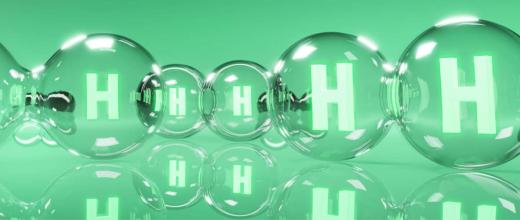29.04.2024
3 minutes of reading
What if we could produce a clean, natural resource with a low carbon footprint without the problem of intermittency? Natural hydrogen makes it possible. But first, we need to understand its formation mechanisms as well as its exploitation potential and, to maximize the chances of this energy source effectively supporting the energy transition, we need to start preparing the sector today. With 15 years’ experience in the field, IFPEN is contributing to this effort by actively participating in large-scale national and international projects.
In 2008, IFPEN began studying hydrogen seeps at various locations on the earth’s surface in order to evaluate the resource’s potential, thereby laying the foundations for promising exploration. IFPEN was thus a pioneer in the field, making it the obvious choice of partner when it comes to paving the way for the use of this new energy source.
>> Click here to read about IFPEN’s research in the field of natural hydrogen
Natural hydrogen: Evaluating the potential of the French subsurface
In April 2024, the French General Directorate for Energy and Climate (DGEC) asked IFPEN to coordinate the writing of a review to identify the potential of natural hydrogen within French subsurface and assess current knowledge in the field. This review involves teams form IFPEN as well as a dozen of French academic experts.
The study objectives are: to review the physicochemical mechanisms governing underground hydrogen generation, determine potential zones in mainland and overseas France, and, lastly, define possible production methods.
In addition, the report requires to list, with the input of all the sector’s players, the priority actions to be conducted, as well as all projects already underway, in order to promote the sector’s development and growth.
H2 TCP: promoting geological hydrogen worldwide
In parallel, IFPEN is also co-leading the new Natural Hydrogen Task initiated by the H2 TCP (Hydrogen Technology Collaboration Program) of the International Energy Agency (IEA). Objective: to organize and develop the promotion of natural hydrogen internationally.
Joint supervisor of this working group is IFPEN expert Olivier Sissmann, appointed alongside Eric Gaucher (Lavoisier H2 Geoconsul) with the support of Omid H. Ardakani (general secretary of the TCP). Olivier Sissmann, whose expertise lies in the field of geochemistry, has been studying natural hydrogen, its formation mechanisms and its geological properties for more than 10 years.
Set up for a duration of two years and involving 31 academic and industrial experts from 16 countries, the working group aims to raise awareness of the current state of the art in terms of research and industrial exploration of this new energy source, covering all the scientific, technical, economic, legal and environmental aspects associated with the study and use of hydrogen.
Expected outcomes: a state of the art to guide national and international research programs, a roadmap to support the exploration/production sector, reserve evaluation methods, recommendations for the adaptation of mining methods, infrastructures and exploration project funding and, lastly, a risk assessment and an environmental evaluation.
Between the review requested by the DGEC and the IEA’s new natural hydrogen task, IFPEN’s expertise should contribute to deploy a cleaner and more sustainable energy system.








